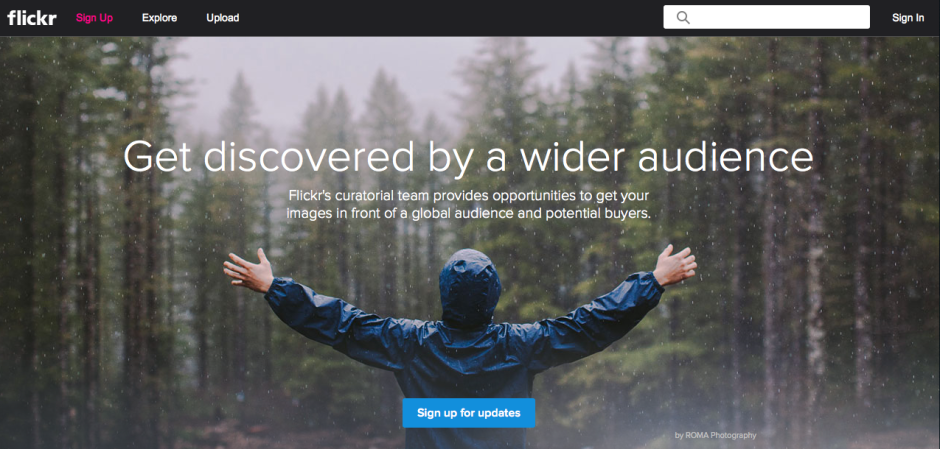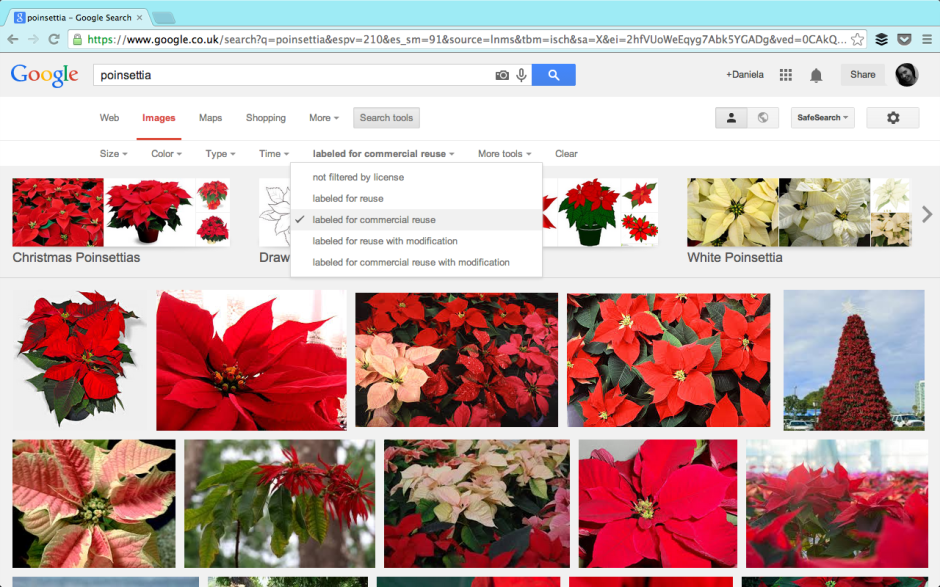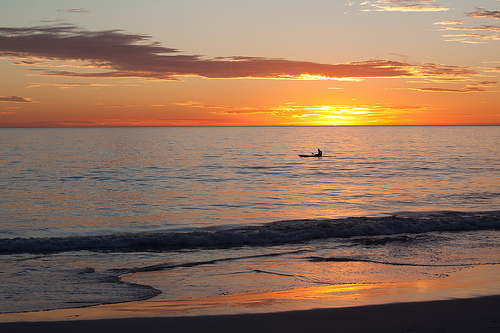When Flickr and Getty announced earlier this year that they'd not be renewing their licensing deal, I suggested that it might not be long before Flickr unveiled its own in-house licensing project. With well in excess of five billion images on its servers, Flickr has a huge stock library waiting for exploitation: easy sales for Flickr users and a cut for Yahoo! is a win-win situation. We had a four-and-half month wait for the grand reveal: today, Flickr announced its Curated Connections project. Well, I say it was a grand reveal, it was more of a swift overview.

What is Flickr offering photographers who sign up to the Curated Connections project? It's a good question that doesn't have an especially solid answer, for the announcement is curiously light on specifics. The Flickr blog post tells us that they are: 'excited to introduce a new way for you to partner with photo agencies, editors, bloggers and other creative minds who are seeking original content like yours.' But there's no indication of what this new system is or how it will operate.
Flickr's curatorial team will be there to 'provide assistance, outreach and connectivity to help you get your photos licensed!' But it doesn't detail what this will entail. It's hardly surprising that with such a vague outline of what they're planning there isn't any significant information concerning such trivialities that interest photographers, namingly licensing terms. We're told that they'll be transparent and easy, although as things stand the terms remain mythical beasts.
The sign-up page tempts users with suggestions that their images might be used by media behemoths including the BBC, Gizmodo, the New York Times, and Reuters. There's even a mention of previous licensing-partner Getty. As you might expect from a Yahoo! owned company, there is potential for your images to be used on other Yahoo! owned, sites, too. Part of the 'outreach and connectivity' that Flickr hopes to offer are opportunities to complete commissions and assignments. Flickr's definitely talking the talk here.
Being able to share your images and make them available for licensing in one place is appealing—and it's something that other photo-sharing sites, for example 500px and EyeEm are also beginning to entertain—but so much of that appeal is going to depend on how the deals are cut and the terms under which images are released. Allowing Flickr to deal with the tedium of bureaucracy might not be suitable compensation if the remuneration is insufficient. Will it walk the walk?
 Can we have a baked and iced cake, please, Flickr? It beats a half-remembered recipe.
Can we have a baked and iced cake, please, Flickr? It beats a half-remembered recipe.
So do tell us, Flickr: what exactly are you proposing here? There's a lot of ethereal chatter and not much substance. I'm sure that you're excited by your new project and you want us to be excited about it, too, but it rather helps if you share with us the pertinent facts. It's something of a half-baked non-announcement at the moment. We've no idea if the cake's carrot or chocolate or something else entirely. Provide us with an actual announcement that you've baked and iced and we might be slightly more enthusiastic. Or not. Depending on what you suggest (I prefer lemon, for reference).
If you are interested in Flickr's Curated Connections, you can sign up here.








